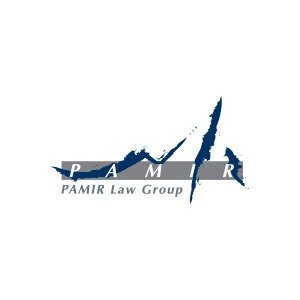Best Banking & Finance Lawyers in Taiwan
Share your needs with us, get contacted by law firms.
Free. Takes 2 min.
Or refine your search by selecting a city:
List of the best lawyers in Taiwan
About Banking & Finance Law in Taiwan
Banking and finance law in Taiwan encompasses a wide range of regulations and guidelines governing financial institutions, intermediary services, and financial transactions. The legal framework in Taiwan is designed to promote stability, protect consumers, and encourage the healthy development of financial markets. Key regulatory bodies include the Financial Supervisory Commission (FSC), which oversees banks, securities firms, and insurance companies, and the Central Bank of the Republic of China (Taiwan), which manages monetary policy and foreign exchange. With a rapidly evolving financial landscape, Taiwan's banking and finance laws strive to adapt to global standards while addressing local market needs.
Why You May Need a Lawyer
There are numerous scenarios where individuals and businesses might require legal assistance in banking and finance in Taiwan:
- Regulatory Compliance: Financial institutions and intermediaries must comply with stringent regulatory standards. Legal counsel can help navigate these complexities to ensure adherence to relevant laws.
- Dispute Resolution: Conflicts can arise in banking and finance, whether they involve loans, securities transactions, or contractual issues. A lawyer can provide representation in resolving these disputes.
- Contract Drafting and Negotiation: Legal professionals can assist in drafting loan agreements, investment contracts, and other financial documents to protect your interests.
- Financial Fraud and Mismanagement: In cases of suspected fraud or mismanagement, legal experts can help investigate and pursue appropriate legal actions.
- Mergers and Acquisitions: Complex legal considerations are involved in financial transactions, such as mergers, acquisitions, and restructuring-a knowledgeable lawyer can facilitate these processes.
- Cross-Border Transactions: For businesses involved in international trade, understanding the regulatory environment across different jurisdictions is crucial-legal assistance can help mitigate risks.
Local Laws Overview
Taiwan's banking and finance laws are primarily governed by several key pieces of legislation:
- Banking Act: Regulates the establishment and operation of banks, addressing capital requirements, permissible activities, and oversight mechanisms.
- Financial Holding Company Act: Provides a legal framework for financial holding companies, allowing them to offer diversified financial services through various subsidiaries.
- Securities and Exchange Act: Covers the registration and regulation of securities and securities firms, focusing on transparency and investor protection.
- Insurance Act: Dictates the licensing and operation of insurance companies, including policyholder rights and insurer responsibilities.
- Money Laundering Control Act: Implements measures to prevent and combat money laundering and terrorist financing, with strict reporting and compliance requirements.
- Protection of Financial Consumer Act: Establishes the rights and protections for consumers engaging in financial transactions, promoting fairness and accountability.
Frequently Asked Questions
What regulatory body oversees banks in Taiwan?
The Financial Supervisory Commission (FSC) is the main regulatory body that oversees banking activities in Taiwan.
Are there restrictions on foreign investment in Taiwan's banking sector?
While Taiwan welcomes foreign investment, there are specific regulations and approval processes for foreign entities looking to invest in the banking sector.
What should I do if I suspect fraudulent activity in my bank account?
You should report the activity to your bank immediately and consider consulting with a legal advisor to explore potential legal remedies.
How are financial disputes typically resolved in Taiwan?
Financial disputes can be resolved through negotiation, mediation, arbitration, or litigation, depending on the nature and complexity of the case.
What are the consumer rights protections under Taiwanese law?
The Protection of Financial Consumer Act provides extensive rights to consumers, including the right to information, fair treatment, and recourse in disputes.
Can I engage in crowdfunding activities in Taiwan?
Yes, but there are specific regulations regarding crowdfunding, and platforms must be registered and comply with FSC guidelines.
What are the penalties for non-compliance with financial regulations?
Penalties may include fines, suspension of business operations, or imprisonment, depending on the severity of the violation.
How do I verify the legitimacy of a financial advisor or firm?
You can check with the FSC to verify if an advisor or firm is registered and in good standing.
What is the process for filing a complaint against a financial institution?
You can file a complaint with the institution's customer service, and if unresolved, escalate it to the FSC or seek legal counsel.
Are there specific considerations for SMEs seeking financing?
SMEs should be aware of different financing options, eligibility criteria, and potential legal obligations or collateral requirements.
Additional Resources
For further assistance and information, consider the following resources:
- Financial Supervisory Commission of Taiwan
- Central Bank of the Republic of China (Taiwan)
- Taiwan Depository & Clearing Corporation
- Taipei Bar Association (for legal referrals)
- Taiwan Corporate Governance Association
Next Steps
If you require legal assistance in banking and finance, consider taking the following steps:
- Identify Your Needs: Clearly understand the nature of your issue to communicate it effectively to a lawyer.
- Research Qualified Lawyers: Look for lawyers or firms specializing in banking and finance law with a proven track record.
- Schedule Consultations: Engage with potential lawyers to discuss your case, their experience, and fees.
- Prepare Documentation: Gather all relevant documents, contracts, and communications before your consultation.
- Consider Costs: Evaluate the potential legal fees and decide on a budget for legal services.
- Take Action: Once you have selected a lawyer, proceed with the necessary legal steps to address your issue.
Lawzana helps you find the best lawyers and law firms in Taiwan through a curated and pre-screened list of qualified legal professionals. Our platform offers rankings and detailed profiles of attorneys and law firms, allowing you to compare based on practice areas, including Banking & Finance, experience, and client feedback.
Each profile includes a description of the firm's areas of practice, client reviews, team members and partners, year of establishment, spoken languages, office locations, contact information, social media presence, and any published articles or resources. Most firms on our platform speak English and are experienced in both local and international legal matters.
Get a quote from top-rated law firms in Taiwan — quickly, securely, and without unnecessary hassle.
Disclaimer:
The information provided on this page is for general informational purposes only and does not constitute legal advice. While we strive to ensure the accuracy and relevance of the content, legal information may change over time, and interpretations of the law can vary. You should always consult with a qualified legal professional for advice specific to your situation.
We disclaim all liability for actions taken or not taken based on the content of this page. If you believe any information is incorrect or outdated, please contact us, and we will review and update it where appropriate.
Browse banking & finance law firms by service in Taiwan
Taiwan Attorneys in related practice areas.
Browse banking & finance law firms by city in Taiwan
Refine your search by selecting a city.
















